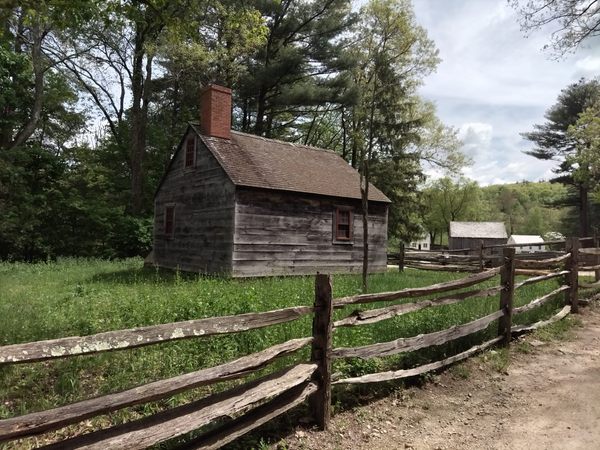Located on the easternmost edge of Interstate 84, Sturbridge is a relatively small town that serves as a stop for many travelers heading southwest toward Connecticut, New York, and Pennsylvania. Gas stations, hotels, and restaurants are found in abundance here, but Sturbridge also holds a unique location unlike anything else in the area. A village, where people live and work not like the present day, but early Republic America over 200 years ago.
The story of the village begins in 1926, with industrialist Albert B. Wells’s collection of antiques from the previous century. He became enamored with anything connected to daily life from that time and his son George convinced him to build an entire village recreating life from the early 19th century. The Wells family purchased the nearby Quinebaug Farm and the Old Sturbridge Village opened in 1946.
With over 200 acres, more than 40 antique buildings, three water-powered mills, and a working farm, the village is the largest outdoor living history museum in the Northeast. It seeks to recreate daily life in a rural New England village during the Early Republic era (roughly 1780–1830). The village has everything a small community would have had back then including a church, bank, school, tavern, armory, shops, metalsmith, mills, farms, and houses. ’
Each individual location offers a unique interactive look at the role it played in village life complete with costumed historians and reenactors adding a sense of authenticity and bridging the gap between the past and present. All these factors have made the village a popular destination for educational field trips, filming locations for multiple productions, private events, and naturalization ceremonies that occur on the Fourth of July.
Visiting the village feels like stepping back into the pages of time. Seeing historical artifacts on display at museums is one thing, but to see old machinery and items come to life being faithfully used as it was over two centuries ago is an entirely different experience. It demonstrates that history is more than simply words on paper or pictures in a book. It brings to life a vibrant world that once existed but will never return.

